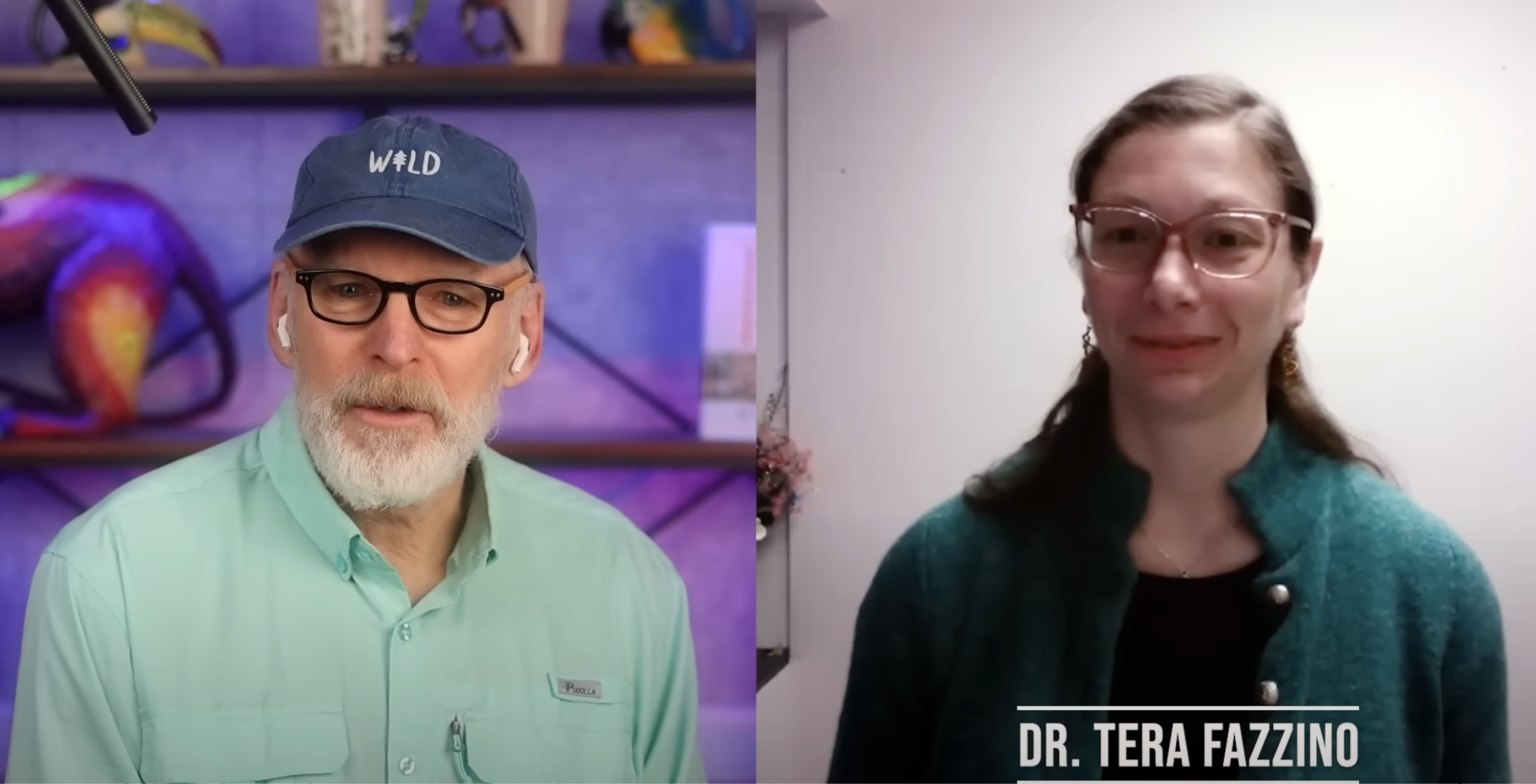Tera Fazzino shares 'hyperpalatable' food research with host of nutrition science YouTube channel

KU Life Span Institute investigator Tera Fazzino’s research on “hyperpalatable” foods caught the attention of YouTuber Chris MacAskill, who on March 25 featured her on his Plant Chompers channel.
The host, who describes himself as a retired earth scientist, promotes a plant-based diet on his show. He frequently interviews experts on nutrition and health. MacAskill hosts the show from a colorful set with purple backlit shelves with kitschy coffee mugs, a statue of baby opossums clinging to their mother’s back and various books on nutrition.
Fazzino, associate director at the Cofrin Logan Center for Addiction Research and Treatment, said she agreed to speak after reviewing a few episodes.
“It's a really quirky thing, but he does a really good job. So that's why I decided to do it,” she said.
First described by Fazzino in 2019, hyperpalatable foods have specific combinations of fat, sugar, sodium and carbohydrates that make them artificially rewarding to eat and harder to stop consuming.
MacAskill wanted to know more about Fazzino’s latest research on how food is engineered to encourage consumers to keep eating, with some foods now twice as likely to be hyperpalatable from 1988 to 2001 and four times as likely to be hyperpalatable from 1988 to 2018.
“Her discoveries speak to so many mysteries about how we gain weight,” MacAskill said.
Fazzino’s work showed that foods from main food groups like dairy, eggs, grains and meats have all seen an increase in hyper-palatability.
“We also found that there were types of foods were much more likely to be reformulated to be hyperpalatable over time. The grain-based foods, there were also quite a bit of meats, the estimates were double digits in terms of the likelihood that they were reformulated,” Fazzino said.
MacAskill wanted to know if we are just starting to realize what food scientists have been doing for decades in reformulating foods for hyper-palatability to encourage consumers to eat more.
“Oh, 100%,” Fazzino said. "I have tried to back-engineer and identify key characteristics of these foods, based on what the data are telling me. And that could be close to what the industry has come up with.”
Related: Research Shows Impact of “Hyper-Palatable” Foods Across Four Diets